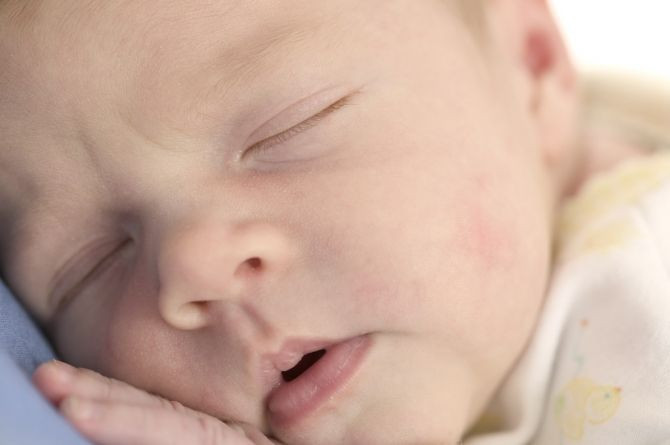Google it? Study Says No To Google When It Comes to Infant Sleep Safety

For many, Google is used as the modern day tool to receive instantaneous answers for a number of our most pressing health questions.
Research shows nearly 59 percent of Americans nationwide used the search engine in 2010 to seek information regarding health. Of those individuals the top users were parents searching for information concerning their children. Nearly 72 percent of adults believed they can trust the information they found while 70 percent of adults agreed that the information impacted their health or their actions concerning their children's health.
Just last year the American Academy of Pediatrics (AAP) released recommendations for infant sleep safety, in hopes to reduce the risk of sudden infant death syndrome (SIDS), along with suffocation, strangulation and any other form of accidental-related deaths. Nonetheless, researchers discovered Google internet searchers do not mirror the AAP recommendations.
Researchers from the University of South Carolina School of Medicine, Children's National Medical Center, and George Washington University School of Medicine and Health Sciences, analyzed the accuracy of information that is provided on the internet concerning infant sleep safety, using Google, the top search engine in the United States. Thirteen key words were developed in order to mirror the AAP's recommendations for infant sleep safety.
With the help of Google, 1,300 websites were analyzed. Results displayed only 43.5 percent of those sites reflected accurate information, 28.1 percent provide false and misleading information and 28.4 percent did not reflect information relating to infant safety. When experts eliminated the sites that reflected inaccurate information the number of sites that did reflect correct data rose to 60.8 percent.
Rachel Y. Moon, MD, pediatrician and SIDS researcher at Children's National Medical Center, Washington, D.C, says "It is important for health care providers to realize the extent to which parents may turn to the internet for information about infant sleep safety and then act on that advice, regardless of the reliability of the source."
The key phrases that generated the most accurate results were: "pacifier infant," "infant home monitor," and "infant co-sleeping."
This study was published in the Journal of Pediatrics.



























